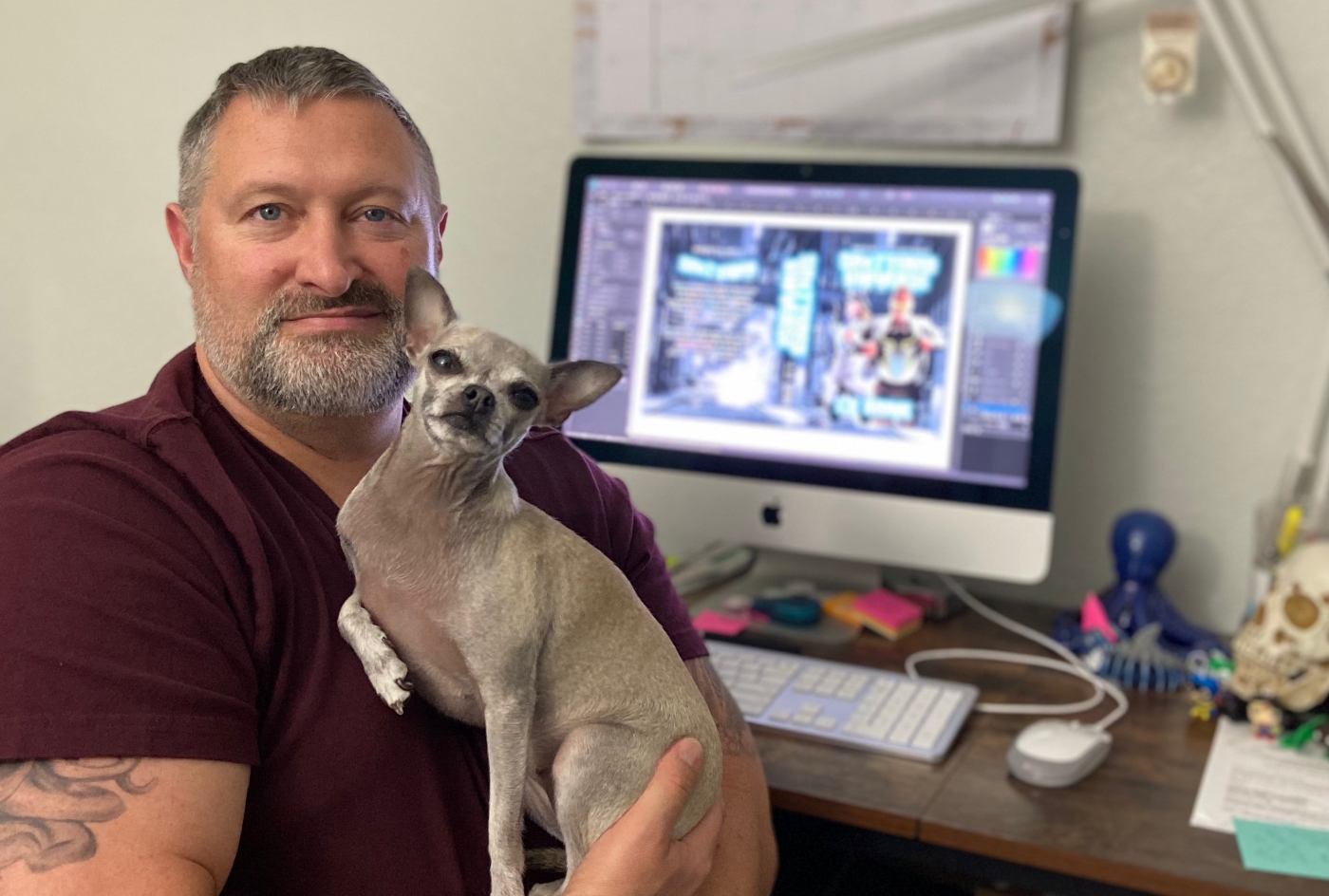We recently connected with Lisa Hinz and have shared our conversation below.
Hi Lisa, thank you so much for opening up with us about some important, but sometimes personal topics. One that really matters to us is overcoming Imposter Syndrome because we’ve seen how so many people are held back in life because of this and so we’d really appreciate hearing about how you overcame Imposter Syndrome.
It was midnight and I was sitting at my kitchen table in complete darkness. I couldn’t breathe because I was crying so hard. I was having an anxiety attack and meltdown. Never had I felt the world heavier on my shoulders.
Why was I experiencing this?
Because I was offered a job promotion.
Yep. A promotion. That’s how anyone would respond, right?
Probably not… Imposter Syndrome had completely enveloped me.
I knew I was identified as the successor for this group. The challenge is that the promotion offer came two to three years sooner than I expected it to. I didn’t feel ready yet. I didn’t feel credible enough yet.
So what did I do?
I turned the promotion down.
Even though I was already basically doing the job, I couldn’t get past my own insecurities to see in me what others saw in me.
Imposter syndrome can be referred to as The Silent Career Killer. It proved itself to be an accurate description for me at that time.
I let Imposter Syndrome win.
It affected my mental, emotional, and physical health.
I had my heart checked out because I experienced chest pressure every waking moment for well over a year. I thought I was a heart attack waiting to happen. Thankfully, tests showed that my heart was fine. What I had was extreme anxiety.
I couldn’t continue down the path I was on because it wasn’t healthy. It wasn’t sustainable. I knew I needed to do something.
I researched. I studied. I went through an intensive coaching certification program to not only work on myself but to arm me with the skills to help others not go through what I did.
I’ve learned four steps that have helped me to learn how to manage it and they’ve helped my coaching clients. It has been a game changer for me. I only wish I had known this years ago as it would have saved me from expending so much unproductive energy towards it.
1 – Track Your Triggers. As soon as you experience some of these imposter-like thoughts – stop for a moment and think about what caused you to think it – what was your trigger. Where are you? What are you doing? Who is around you? Is it reasonable to feel this way in this situation? Type them into your phone or write them down in a notebook – be as specific and descriptive as possible. You will likely be able to see if there are patterns. There may be one or two main things causing you to feel this way. By knowing what these triggers are, you will be better equipped to anticipate them which can help reduce their effects.
2 – Take Action – If you’re tracking your triggers you will be able to intentionally become more proactive vs reactive with an action to take that can help minimize those feelings. If someone tasking you with something you’re not well versed in is a trigger – what is ONE action you can take that turns your thoughts of self-doubt into thoughts of growth or opportunity? Instead of sliding into a mindset of anxiety and believing that you’re not knowledgeable enough, one action might be to think of a person who has experience with this task and set up a call with him or her to ask them questions and start working on a list of questions.
How might that ONE action help alleviate feelings of imposter syndrome?
Actions don’t have to be huge. They can be small.
When you don’t take action, it allows your thoughts to fester and the possibility for your confidence to shine through is suffocated.
Actions deliver outcomes. When you take action, that’s when things evolve because you’re learning and gaining more experience and your confidence gets a boost. You start believing that you deserve what you’ve worked so hard to accomplish.
3 – Record your Successes and Strengths. Write out what you’re good at, your accomplishments, and experience. Literally write it or type out and read it. You can even use your resume as a base document to work from. Keep it accessible so that you can continue to add to it. It’s not bragging – it’s a reminder to you of everything you’ve worked hard to accomplish. It’s PROOF that you HAVE the experience. That you ARE deserving of your successes and opportunities.
4 – Talk About It – Shame keeps a lot of people from being open about their struggles. They keep it a secret. They don’t want to further their proof of being seen as a fraud because they’re already struggling with feeling like a fraud.
When you keep your feelings of imposter syndrome a secret, they grow bigger and can become harder to manage.
Finding a mentor, peer, or coach who you trust and feel comfortable talking with can make SUCH a big difference.
I didn’t talk about it. With anyone. I was afraid I would be seen as weak – that I would further my proof of being the fraud I felt I was. So I internalized it for a very long time and it wasn’t healthy for me. I honestly believe that if I had talked to someone about what I was going through, that I would have taken the promotion at that time.
About a year and a half after turning down the promotion, I ended up taking that promotion. I was fortunate that they were willing to still give it to me. I did a lot of work on myself and gained a lot of self- awareness.
I’m not promising that it goes away completely or forever, but these four steps can certainly help minimize those feelings and help get you unstuck and moving forward and taking action.
As Wayne Dyer once said, “You are not stuck where you are unless you decide to be.”
I decided I didn’t want to be stuck anymore.
If imposter-like thoughts start taking over – take a time out, a deep breath and focus on these four steps. Recognize your talents. Give yourself the credit you really deserve. Know that no one knows everything and that everyone starts somewhere.
Don’t let Imposter Syndrome win. You deserve so much more than that.
Appreciate the insights and wisdom. Before we dig deeper and ask you about the skills that matter and more, maybe you can tell our readers about yourself?
I am a leadership coach and speaker with 20+ years of corporate leadership, talent development, and communications experience including Fortune 300 companies. I’ve led large teams spanning across the U.S. and Canada, have overseen change and organizational management, and have seen and experienced first-hand the challenges that professionals navigate through their careers.
My leadership development and coaching company, The Confidence Track, focuses on elevating leadership confidence and influence.
Developing people into the best versions of themselves is my passion. We are often so hard on ourselves. We need to learn how to embrace and appreciate the talents and potential each of us has. And as leaders, each of us can make a positive and constructive influence on others and be examples of what is possible.
I’m working on creating new cool leadership programs and offerings all the time!
I currently offer:
✔️ Leadership development programs
✔️ One-on-one coaching
✔️ Women’s Leadership Success Mastermind programs
✔️ Imposter Syndrome workshops and webinars
✔️ Attitudinal assessments
✔️ 360 assessments
✔️ Speaking
✔️ Facilitation of mentorship programs
Looking back, what do you think were the three qualities, skills, or areas of knowledge that were most impactful in your journey? What advice do you have for folks who are early in their journey in terms of how they can best develop or improve on these?
#1 – Work on your mindset. That is so crucial. I wish schools offered this in their curriculums. As kids, we are taught what to think but not necessarily how to think. We don’t learn how we really can control our thoughts and create new healthier and more productive habits.
#2 – Always be on lookout for opportunities. Many of us are on autopilot going through our days responding to whatever comes our way. We can develop tunnel vision in that we only see what we want and need to see. Opportunities likely pass right by us every single day. It might be an opportunity to ask questions to a more senior level person who can teach us something. It might be an opportunity to offer your expertise on a project. It could be anything. These opportunities can lead to great things. Unless you keep your eyes open for them, they will continue to pass you by.
#3 – Strengthen your empathy. Empathetic leadership is needed. Some fear that being an empathetic leader means you always give and that you are weak. That is not what it means. Empathetic leadership allows one to connect with others in a way that fosters understanding, trust, and respect. Imagine the impact that can make on morale, retention, productivity, and culture. I consider it to be a power skill with tremendous impact.
Who has been most helpful in helping you overcome challenges or build and develop the essential skills, qualities or knowledge you needed to be successful?
Doing things that scare or intimidate me. I’ve learned that you have to face those fears head on. Once you get through it, you realize it usually isn’t as bad as what you thought it would be. Our minds have a way of inflating reality sometimes.
As an example, I wanted to become a good speaker. I hated speaking. It made me sick to my stomach just thinking about it. I greatly admired those who could get up on a stage and command the room’s attention and deliver a powerful message. I knew I needed to build that skillset to achieve the success I desired to achieve.
I made myself join Toastmasters. I was so nervous. But I did it. And it is an absolutely amazing organization for anyone who wants to build communication and speaking skills. I’ve been a member on and off throughout my career.
I really believe that becoming a good speaker has served me in tremendous ways and has opened opportunities I wouldn’t have had otherwise.
Contact Info:
- Website: https://theconfidencetrack.com/
- Facebook: https://www.facebook.com/theconfidencetrack
- Linkedin: www.linkedin.com/in/lisahinz




